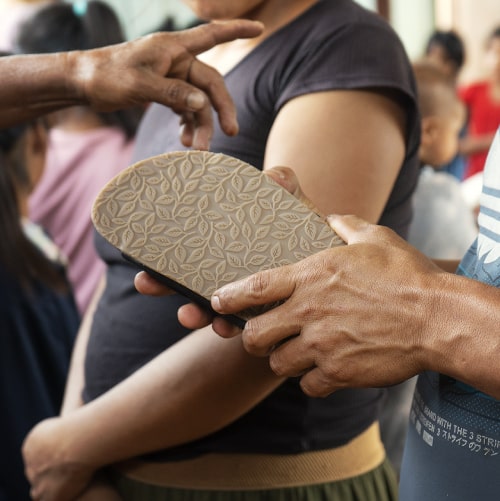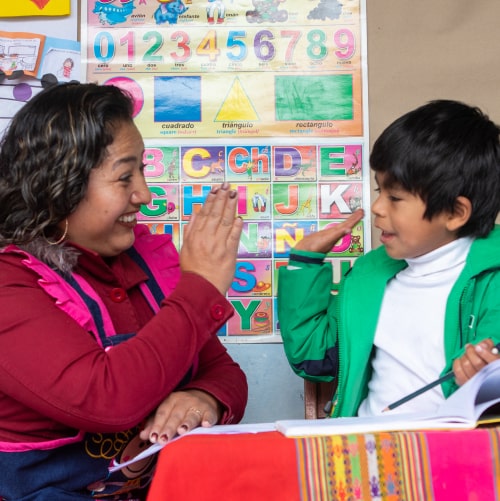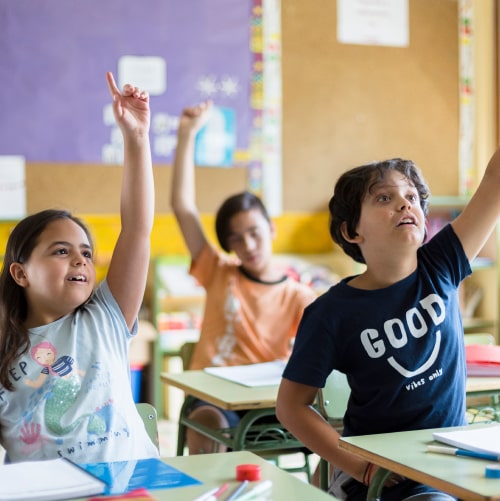- The Wiese Foundation and UNESCO Peru co-organized the workshops “Cultural Heritage: Driving Sustainable Social Enterprises” within the framework of the Entrepreneur Fund program.
These inspiring workshops, held from June 20 to 22, were aimed at the representatives of the 7 social enterprises preselected from the aforementioned program. Master talks, presentations of success stories and valuable exchanges with specialists, founders and managers of social enterprises from various countries in the region set the tone during the three dates. The event focused on raising awareness among participants about the importance of cultural aspects related to their social enterprises, as well as the great opportunity represented by the use of the Peruvian tangible and intangible cultural heritage for the creation of value and their sustainable growth.
Connecting Cultural Heritage with Social Entrepreneurship
The opening day of these workshops was a unique opportunity to explore the challenges and opportunities that cultural heritage and industries present for social entrepreneurship in Peru. Luis Guillermo Cortés, specialist in cultural management and policies, shared his experience and knowledge in the field, highlighting the importance of having this type of venues for exchange and reflection to share experiences with entrepreneurs. Furthermore, he pointed out that considering culture as a transversal axis when developing social enterprises should be encouraged.
“When we think about the development of social enterprises or of any kind, culture is always on the sidelines. The goal for me is to awaken minds and reflect on the role that culture and cultural expressions play in everyday life, especially for those looking to start or develop a social enterprise. It is crucial to detect and understand these elements,” emphasized Luis Guillermo Cortés.
The entrepreneurs also had the opportunity to be inspired by the testimony of Thomas Jacob, president of Pietà. During his presentation, he shared the successful case of this social fashion project that emerged in the prisons of Lima.
Finally, Alberto Suárez, manager of Amarumayu and Global Sustainability of Grupo AJE, spoke about the case of Bio Amayu, superfruit juices obtained and cultivated in the Amazon basin by native communities. His objective was to raise awareness about the importance of having sustainable and fair production chains, in addition to working for the preservation of ecosystems and native communities. For Alberto Suárez, the valorization of Peru’s biodiversity is a basic aspect and one of change that social entrepreneurs must take advantage of when creating businesses with triple impact.
“[Entrepreneurs] are young, but they have the country in their hands. Youth is a driver of change, and what better way to do it than through ventures that protect Mother Earth and help rural communities. The basic issue is to valorize our biodiversity, which is the potential and differentiating factor of Peru, and that gives us significant competitiveness in the market”, he said.
Sustainability and Culture: Driving Social Entrepreneurship
On the second day, the relationship between sustainability, culture and social entrepreneurship was addressed in depth. Adriana Marina, president of Animaná, shared her vision and experience in founding a sustainable luxury brand that preserves local communities, the environment and generates wealth through garments made of natural fibers from Patagonia and the Andes.
Along the same lines, Yohannaliz Vega, head of the Unit of Indigenous or Native Peoples in PROFONANPE (National Fund for Natural Areas Protected by the State), highlighted the importance of promoting biodiversity and indigenous peoples. During her presentation, she underscored the fact that Lima is the department with the greatest presence of indigenous or native communities, which is a surprising reality. Vega emphasized the need to consider cultural diversity and interculturality not only in rural areas, but also in cities like Lima. Regarding the identification and registration of these communities, she noted:
“[In Lima], these communities are already identified at the district level, including the percentage of the population that speaks an indigenous language. Perhaps we have yet to work on issues of self-identification and organization, but there are many opportunities to be explored for working here in Lima.”, she said.
Karissa Becerra, coordinator of the Gastronomy program at PUCP (Pontifical Catholic University of Peru), also participated. She shared perspectives on the opportunities that local communities and sustainable production chains offer to social enterprises. In her speech, she emphasized the role of these chains in generating an integral benefit, promoting responsible practices and contributing to the sustainable development of the communities and ecosystems involved.
Cultural Diversity and Social Entrepreneurship
The third day began with a talk by Mónica Barriga, director of Cultural Diversity and the Elimination of Racial Discrimination of MINCUL (Ministry of Culture), who underscored the importance of generating synergies and alliances to advance the objectives of equality, diversity and cultural promotion, and eliminating ethnic-racial discrimination.
“The addition of social enterprises, the private sector, the public sector and citizens in general is the best way to advance in the fight against discrimination. And the strategy “Peru without racism” that the Ministry of Culture has been implementing opens the possibility for us all to unite.”
On this last date, the story of Compadre coffee was also described and, to close the event, the entrepreneurs had the opportunity to meet and talk with the founder of Paccari, the prestigious and award-winning international company of fine aroma chocolate that also began its path as a small social enterprise. These companies are characterized by their passion to offer quality products and, at the same time, generate a positive social impact in the communities with which they work.
Fostering the triple impact
It is important to understand that cultural heritage is not limited to the material, but also includes the immaterial, such as ancestral customs, knowledge and practices. José Salazar, technical secretary of the Pact for Culture to 2030 at UNESCO Peru, underscores the fact that the Entrepreneur Fund is contributing to the integration of cultural heritage into business models that are now being benefited by the program. Culture and this knowledge represent a path for economic, social and even environmental development.
“Working with them helps strengthen the economic dimension of communities and entrepreneurs, unites our identity, makes us proud of our culture and generates a positive impact on the environment by working inside protected areas. It is precisely this triple impact that we are banking on at UNESCO”, he said.
For Ingrid Claudet, general manager of the Wiese Foundation, these venues meant a platform for the exchange of ideas, the generation of networks and the strengthening of capabilities, providing the participants a solid basis to continue their work in the social and cultural ambit.
“These workshops mark a milestone in our [Entrepreneur Fund] program. We are sure that they have been profitable venues for all participants, who are not only entrepreneurs, but also have an important social mission in the country”, he said.
The collaboration between the Wiese Foundation, UNESCO Peru and the culture sector is a long-standing one, and on this occasion they come together again to address social entrepreneurship in depth. Ingrid Claudet highlighted the success of the call for entries of the second edition of the program and the presence of the cultural component in the business models of the finalist ventures.
“The call for entries process has been very successful. And of the ventures involved in the pre-acceleration stage, 6 are related to cultural heritage. This confirms our idea of uniting social entrepreneurship with the revalorization of Peru’s material and immaterial cultural heritage as a way to add value to business.”
On behalf of the Wiese Foundation, we wish to express our gratitude to our allies, speakers and specialists for dedicating their time and making these workshops possible. We also extend our thanks to all the social entrepreneurs who were part of them.
You may also be interested in these topics:
1. What is social entrepreneurship? 7 social enterprises that can inspire you
2. What is crowdfunding and how can it help you start your social enterprise?
3. Social Entrepreneurship: Lima, Cusco and San Martín are the regions with the highestrate of social entrepreneurship









